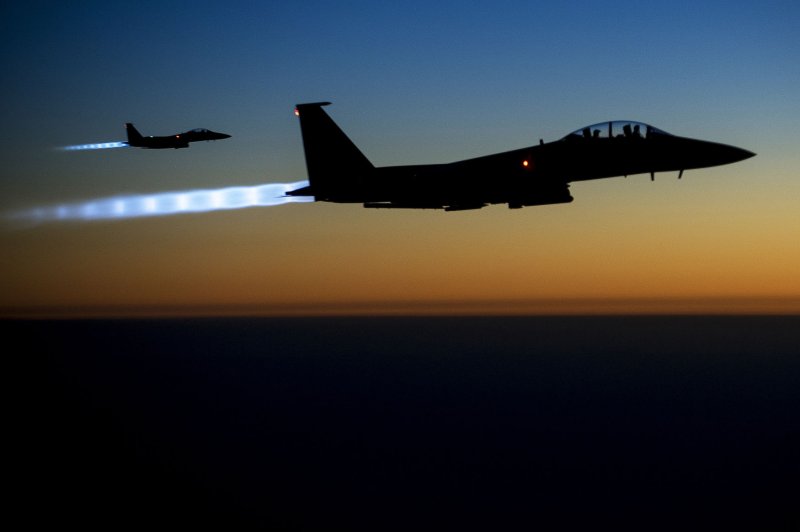Jan. 5 (UPI) -- U.S. military forces conducted 58 strikes against Islamic State terrorists in Syria and Iraq between Dec. 29 and Jan. 4, the Department of Defense said Friday.
The strikes, part of Operation Inherent Resolve -- the charge to destroy IS in Syria and Iraq, were conducted by fighter, attack, bomber, rotary-wing or remotely piloted aircraft; rocket-propelled artillery; and some ground-based tactical artillery when fired on planned targets.















